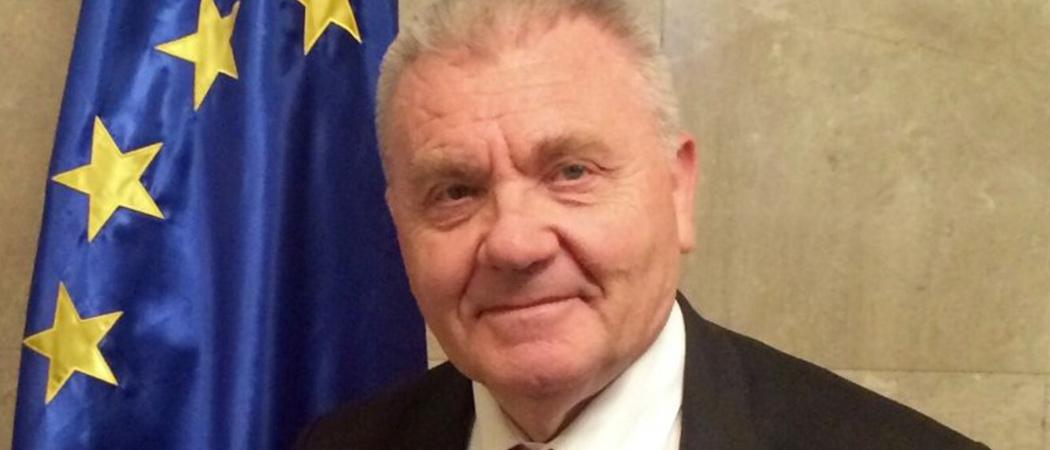Interrupted experiments, uncertain career paths and lingering COVID-19 effects may be discouraging young researchers, warns former European Research Council chief Jean-Pierre Bourguignon. He urges EU-wide action to help the ‘research precariat’

Jean-Pierre Bourguignon, former president of the European Research Council. Photo: erc.europa.eu
The former president of the European Research Council (ERC) is sounding an alarm that the COVID-19 pandemic may disrupt Europe’s supply of scientific talent.
“I fear that we could be facing a moment where we are going to lose three or four years of young researchers, because a number of them turn away saying there’s too much uncertainty, they’ve not been treated well, and so on. That’s the basis for my plea,” Jean-Pierre Bourguignon told Science|Business.
He is urging EU leaders to gather reliable data now on the extent of the problem, and to focus more attention on it to find solutions before it’s too late.
The French mathematician served as the president of the EU’s fundamental research funding agency until this September, and is currently chair of the University Council of Ludwig Maximilians University in Munich. At the ERC, he led the agency’s fight for a bigger budget, enabling it to fund more projects and support more researchers around Europe.
The precariousness of research careers was a growing issue among EU research leaders, even before the pandemic. Young researchers have long complained of being underpaid and denied permanent contracts, leading many to leave academia, their native countries, or science entirely.
In May, the Organisation for Economic Cooperation and Development came out with recommendations for improving working conditions and professional development for the “research precariat”. That same month, EU research ministers agreed the EU needs better support for career development. And some EU member states have started taking note, with Germany adopting a new law to give early-stage researchers more stable contracts and France planning 10% pay raises for public sector early-career researchers.
But Bourguignon doubts these new measures will survive post-pandemic budget cuts as the problem worsens.
“The danger is that the pandemic has pushed this over the edge, and therefore now it’s no longer something that is shaky, but it’s broken,” said Bourguignon. He compared the supply of research talent to water in a pump: hard to restart once it stops. “When the pump stops absorbing people, to get the pump functioning again is difficult.”
Where’s the data?
Several signs point to the pandemic worsening the problem, but hard data are limited.
The European Commission recently conducted a survey asking grantees of the Marie Skłodowska Curie programme for researcher mobility whether the pandemic had an impact on their projects. As many as 83% of fellows said that the impact has been negative or very negative. “And these people are not in the worst position. The support for MSCA is rather good and reasonably long,” said Bourguignon.
The problem has not gone unnoticed by other EU institutions. In October 2020, two Marie Curie researchers filed complaints to the EU Ombudsman over the Commission’s refusal to cover extended costs for MSCA projects that were halted or postponed due to the pandemic. The researchers received support from two German MEPs who called on EU Commissioner Mariya Gabriel to find enough money to cover the extension costs. But the Commission did not grant any extra funding apart from in a few exceptional cases.
Bourguignon recalls a number of anecdotal accounts of young researchers struggling with the pandemic, from deferred field work, to spending months lining up animals for experiments that were interrupted by the pandemic. Now, he argues, it’s time to collect data from around Europe. “The key point is to know, What is the extent to which this is happening? If it’s just a few [instances], you can forget these kinds of fluctuations. If it’s more massive, it could be a real problem,” he said.
Bourguignon wants to know how many researchers’ projects were delayed, suspended or cancelled, how many researchers chose a different career path due to the pandemic, and whether the impact differs between institutions, countries and disciplines.
His idea is to launch an EU-wide exercise next year, and mount a public conference soon to focus political attention on the problem. “We need an agreement on what kind of data should be gathered and if possible to be gathered in a compatible way, so that we can compare the data,” said Bourguignon.





 A unique international forum for public research organisations and companies to connect their external engagement with strategic interests around their R&D system.
A unique international forum for public research organisations and companies to connect their external engagement with strategic interests around their R&D system.